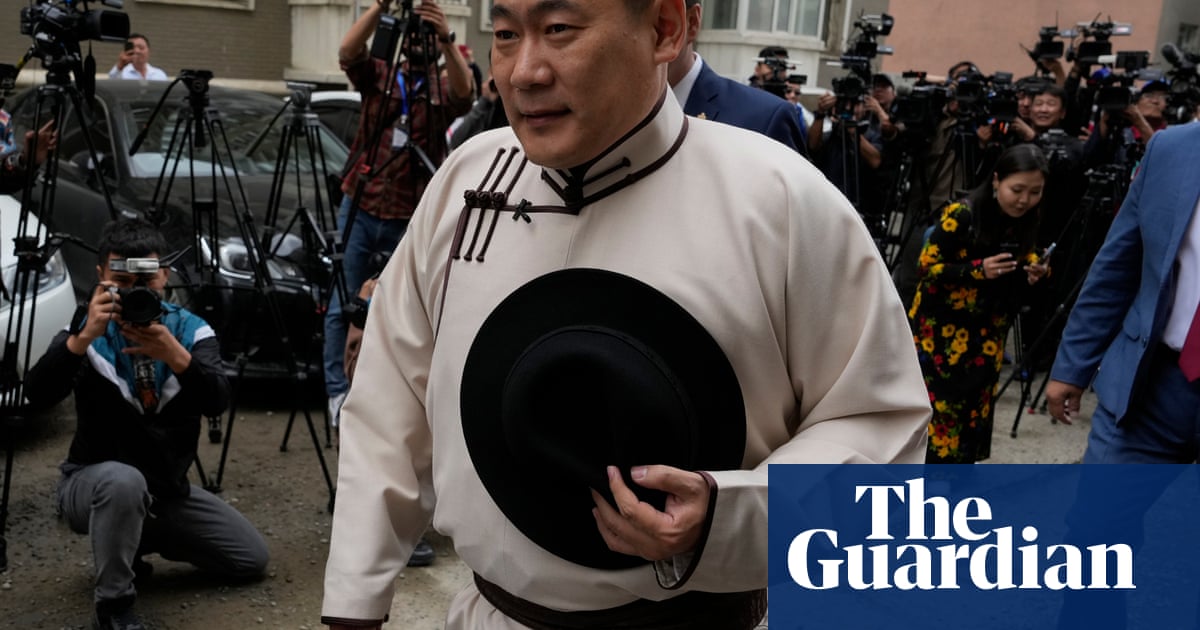Mongolia’s prime minister has resigned after he failed to receive enough support in a vote of confidence in parliament, Mongolian media has reported. The country’s embassy in Washington confirmed it.
Prime minister Oyun-Erdene Luvsannamsrai received 44 votes, well short of the 64 needed, according to news site ikon.mn.
The vote early on Tuesday followedweeks of protests sparked by reports of lavish spendingby the prime minister’s son. Some called for the prime minister to step down.
Before the vote, Oyun-Erdene warned the vote could lead to instability and shake Mongolia’s fledgling democracy.
“If governance becomes unstable, the economic situation deteriorates, and political parties cannot come to consensus, it could lead the public to lose faith in parliamentary rule and potentially put our democratic parliamentary system at risk of collapse,” he said.
He defended his integrity but acknowledged a mistake: “dedicating too much time to major projects while paying insufficient attention to social and internal political matters.”
Oyun-Erdene had held the post for four years and survived previous calls to step down.
Last year, parliament was enlarged from 76 seats to 126 after electoral reforms. It resulted in a coalition government.
Landlocked between Russia and China, Mongolia has struggled to become more democratic after its party-state era. A communist state during the cold war, it has been transforming into a democracy since the collapse of the Soviet Union.
Protesters have said the country’s mineral richeshave benefited business interests and the wealthy, while many Mongolians still live in poverty.
“It’s very difficult to build that foundation for democracy” at a time that Mongolia also must tackle economic problems, which are a major source of people’s frustration, said Erin Murphy, deputy director and senior fellow of India and emerging Asian economics at the Center for Strategic and International Studies.
“We still have to see what happens next and how the new government plans to tackle these issues,” she said.
While democracy is yet to thrive in Mongolia, “it is taking root,” Murphy said.
